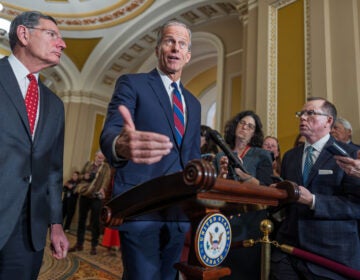Obama’s Dream Act Lite: useful politically, sustainable legally, but flawed as policy.
There are three ways to analyze President Obama’s new policy of prosecutorial discretion against seeking the removal of illegal immigrants who meet certain requirements: politically, legally, and as policy.
To qualify for prosecutorial discretion pursuant to the new policy, illegal immigrants must have entered before the age of 16, resided in the U.S. at least 5 years, are now attending or graduated from high school or served honorably in the military, are now 30 or under, and have never been convicted of a serious crime. Having received prosecutorial discretion, they can apply for work authorization.
This new policy achieved several political benefits for President Obama simultaneously. First it shifted media attention away from the struggling economy and the inconclusive debate over what to do about it. Second, it satisfied a key political constituency, Hispanic voters, and made more likely high voter turnout from this group on election day.
Third, it put the President’s challenger Mitt Romney on the defensive, trying to figure out how to respond without appearing either too moderate for his base or too extreme for the independent voters he needs. Next week both candidates have to speak to a national Hispanic group in Florida. Think fast, Mr. Romney!
So a good day politically for the President’s re-election campaign.
Despite Republican wailing about the President ignoring Congress and the laws it enacts, and alleging violation of the President’s constitutional obligation to “take care that the laws be faithfully executed,” the validity of those charges lies in the eyes of the beholder, not a court of law. No legal case short of impeachment can be made against the President or his subordinate Secretary of Homeland Security. The traditional remedy for an elected official not believed to be faithfully executing the laws is defeat at the polls.
So the President seems to be on firm legal footing for the new interpretation of prosecutorial discretion issuing from his Secretary of Homeland Security.
The problem with the President’s new policy is that it’s inconsistent with the basic goal of our immigration law, to limit the number and the kind of people we welcome to the U.S. each year as legal immigrants. The decision to limit immigration to the U.S. is one we have already made.
The alternative is to welcome unlimited numbers of immigrants without regard to their job skills, education, or family connection to those already here. If that’s what we want, basically open borders and open immigration, Congress can repeal our immigration laws at any time.
But as long as we have a national consensus to enforce an annual numerical limit on legal immigration, new policies should be evaluated according to whether they uphold or undermine existing U.S. law and policy.
Failure to enforce existing U.S. immigration laws is a de facto invitation to more non-citizens to violate our immigration laws. That’s why the number of illegal immigrants in the U.S. has grown so dramatically since the 1986 amnesty of 3 million non-citizens which was supposed to solve the illegal immigration problem once and for all.
And the President’s prosecutorial discretion initiatives allowing illegal immigrants to remain, live, and work in the U.S., in the same way undermine the policy of enforcing immigration laws to restrict immigration.
The President always cites the most sympathetic examples of people who were brought illegally to the U.S. as infants or very young children by their parents, who have no memory of their homelands, and cannot speak their native language. Those are indeed sympathetic cases.
But then why does the President’s initiative benefit those arriving just short of their 16th birthday? Wouldn’t a lower cutoff age still benefit the most sympathetic cases without undermining basic immigration policy to such an extent?
The President always mentions young illegal immigrants now serving or who have served in the U.S. military as sympathetic cases, which they certainly are. But any such persons are already eligible for full U.S. citizenship for serving in the military during the current global war on terror. The new initiative adds nothing to their benefits.
Conferral of amnesty on a smaller subset of the most sympathetic illegal immigrants, who could not assimilate in their home countries, might be justified if coupled with another initiative to support the basic policy of enforcing immigration law. One example would be mandatory E-Verify, requiring employers to verify the work authorization numbers of all employees before hiring them.
That’s the kind of compromise I could support.
WHYY is your source for fact-based, in-depth journalism and information. As a nonprofit organization, we rely on financial support from readers like you. Please give today.




